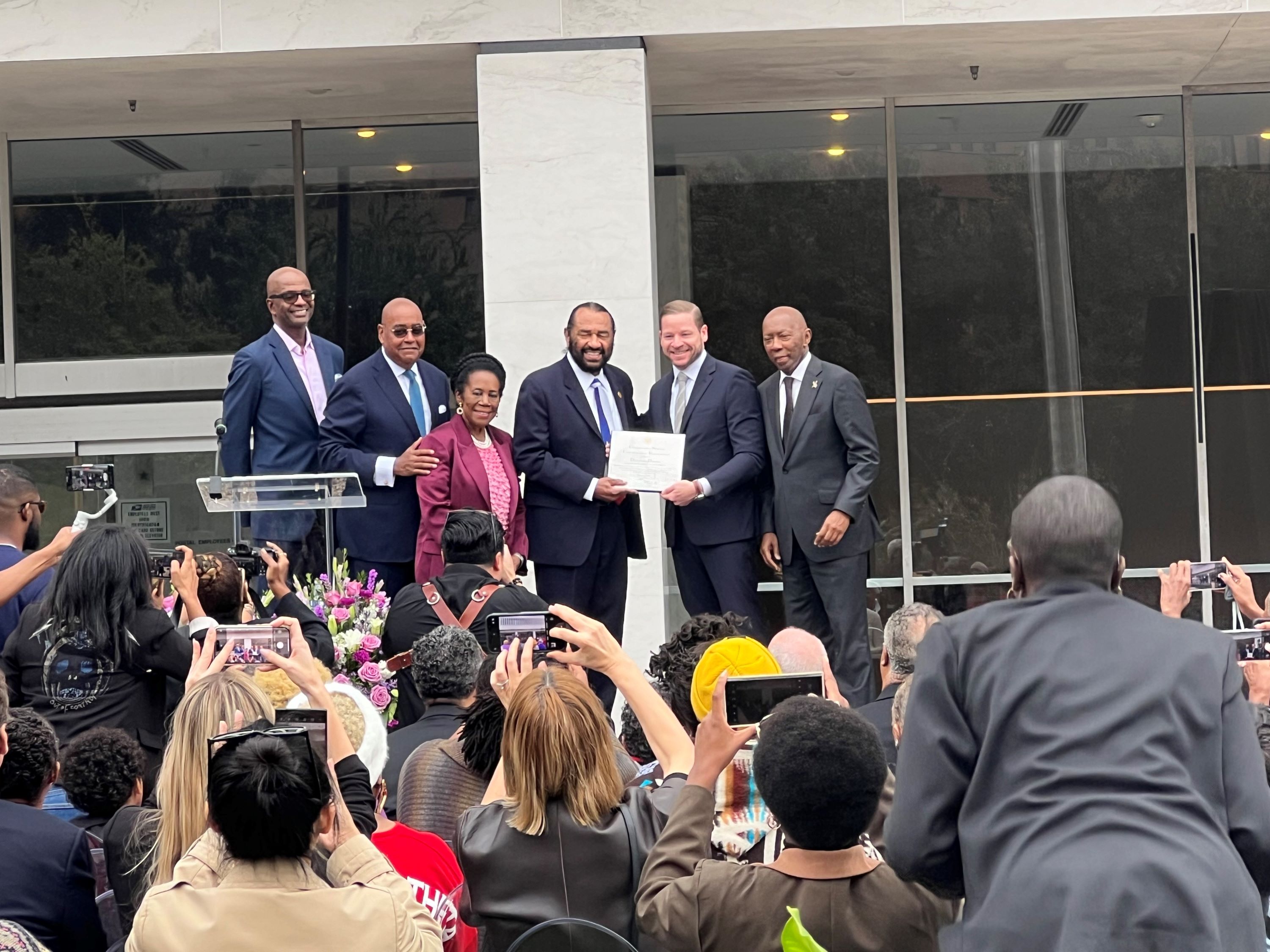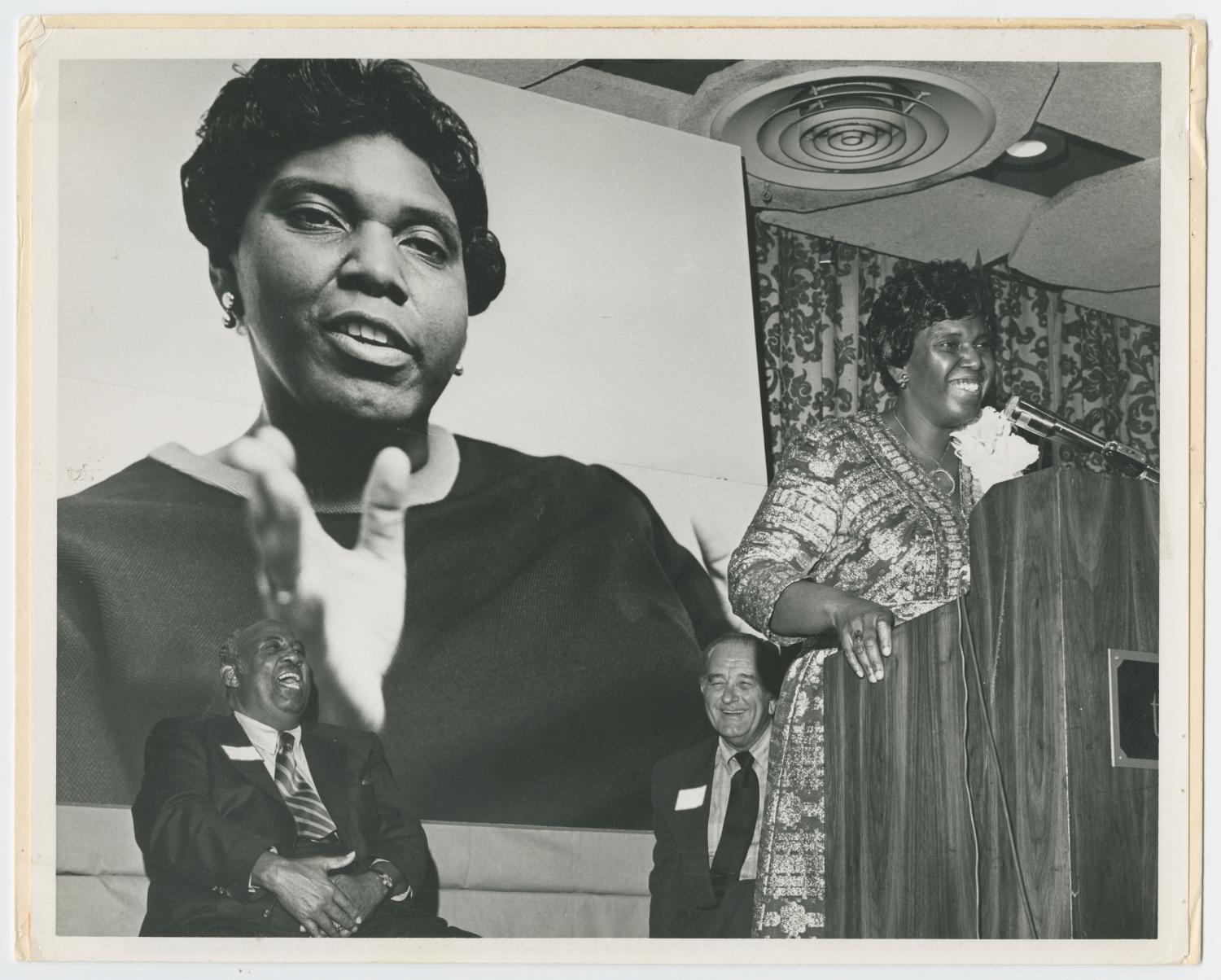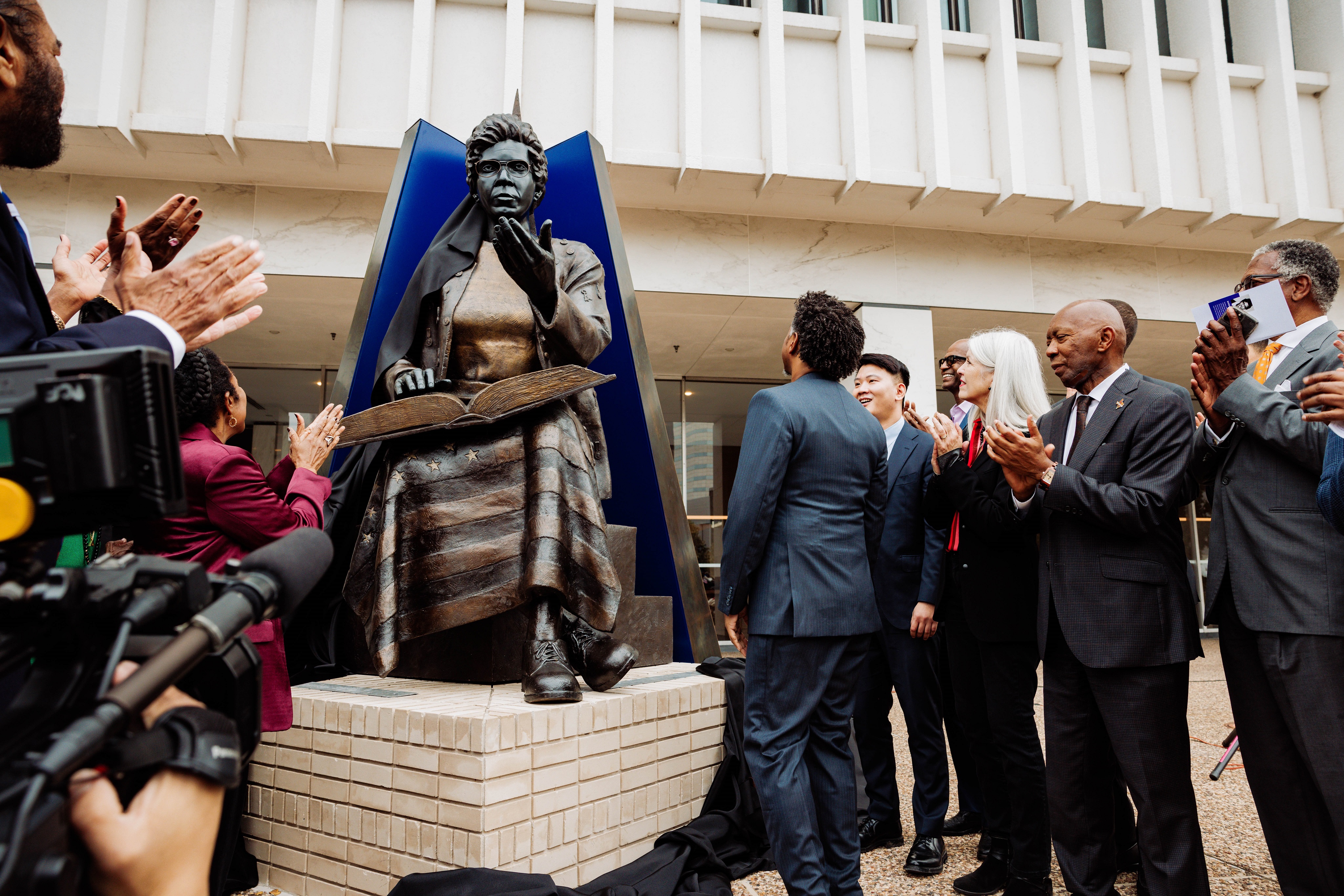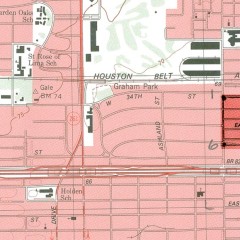“I considered abandoning the dream of a public career in Texas and moving to some section of the country where a Black woman candidate was less likely to be considered a novelty,” she once said. “I didn’t want to do this. I am a Texan; my roots are in Texas. To leave would be a cop-out. So I stayed.”
When the downtown Houston post office at 401 Franklin St. was closed in 2015 and sold to the developer Lovett Commercial, the city could have lost her again.
But because of her enduring legacy as an advocate for the underserved, she was honored with a new Barbara Jordan Plaza and Monument on Dec. 2 at POST Houston — the mixed-use development with food halls, art exhibits, coworking offices and a music venue that now occupies the former post office. The dedication included the unveiling of “I Am Barbara Jordan,” a sculpture of her likeness sitting with an outstretched hand in the plaza. The monument was designed by artist Angelbert Metoyer of Houston.
“This monument will be a reminder to them that it doesn’t come easy,” Houston Mayor Sylvester Turner said during the ceremony. “It doesn't come without hard work. It doesn’t come without sacrifice. It doesn’t come without criticism. But you stand anyway because that’s what Barbara Jordan would do.”
"With the decommissioning of the Barbara Jordan Post Office, it was important for us to retain some element of her legacy, especially in light of the history of the parcel of land that POST sits on,” said Kirby Liu, director at Lovett Commercial. “By building the monument, we strove to establish her among the iconic figures that are commemorated along Bagby Street. We hope that the monument will add to the vibrancy of public life in downtown.”
Architecture firm OMA designed the 500,000-square-foot POST space spanning 16 acres near downtown at the intersection of Interstate 10 and Interstate 45.

●●●
“It does not matter where you came from, or who your parents were. What counts is who you are.” Barbara Jordan
●●●
From Houston to Capitol Hill
While associated with Austin in later life, Jordan grew up in Houston the daughter of a Baptist minister father and a mother who taught in the church. Jordan attended Wheatley High School at the time it was still segregated, graduating with honors in 1952.
She then went to Texas Southern University and earned her bachelor’s degree in 1956 before heading to Boston University for her law degree. Once she passed the bar exam, Jordan began practicing law in Houston.
She was elected a state senator in 1966. During her time in the Texas Capitol, Jordan pushed for a minimum wage law, anti-discrimination statements in business contracts and a Fair Employment Practices Commission.
As a U.S. representative serving the 18th Congressional District beginning in 1972, she served on the House Judiciary Committee, which oversaw the impeachment proceedings of then-President Richard Nixon.
According to Gary Chaffee, former archivist at Texas Southern University, “During her years in Congress, Jordan sponsored or co-sponsored over 300 bills, of which 12 are now federal law. Major bills introduced by Jordan include the extension of the Voting Rights Act in 1975; the Consumer Goods Pricing Act; the Antitrust Parens Patriae Act; an amendment of the Omnibus Crime Control and Safe Streets Act of 1968; and the National Emergencies Act. Jordan was also responsible for passing landmark legislation in the Texas Senate concerning minimum wage, workman’s compensation, health care and insurance, and rights for the disabled.”
●●●
“Education remains the key to both economic and political empowerment.” – Barbara Jordan
●●●

Firsts
Among her accomplishments, Jordan was:
• The first African American woman elected to the Texas Senate.
• The first African American U.S. congresswoman from the South.
• Elected president of the Texas Senate on March 28, 1972, which made her the first Black woman in America to oversee a legislative body. In her four years as a state senator, she sponsored or co-sponsored about 70 bills.
• The first African American woman to deliver a keynote address at the Democratic National Convention in 1976.
●●●
“We call ourselves public servants but I’ll tell you this: We as public servants must set an example for the rest of the nation. It is hypocritical for the public official to admonish and exhort the people to uphold the common good.” – Barbara Jordan
●●●
Defending the Constitution
Jordan gave a master-class speech in prime time during the opening hearing of Nixon’s impeachment proceedings following the Watergate scandal in 1974. She made the case not for impeaching the president but for defending the Constitution.
“We, the people,” Jordan said in her opening remarks. “It is a very eloquent beginning. But when the document was completed on the 17th of September 1787, I was not included in that ‘We, the people.’ I felt somehow for many years that George Washington and Alexander Hamilton just left me out by mistake. But through the process of amendment, interpretation and court decision I have finally been included in ‘We, the people.’”
She urged against rushing to judgment.
“We’ve got to do all of our research. We’ve got to do all the checking. When we have done all of that, then we come together, then we make a decision, but not until then.”
In closing, Jordan said: “Has the president committed offenses, and planned, and directed, and acquiesced in a course of conduct which the Constitution will not tolerate? That’s the question. We know that. We know the question. We should now forthwith proceed to answer the question. It is reason, and not passion, which must guide our deliberations, guide our debate, and guide our decision.”
Ultimately, the Judiciary Committee voted to approve three articles of impeachment against Nixon, who later resigned before being impeached.
Other monuments and honors
The Houston dedication is not the only tribute to Jordan in Texas.
In Austin, the Barbara Jordan State Office Building at 1601 Congress Ave. is the home of the Texas Department of Insurance and the Capitol Complex Child Care Center.
The life-size Barbara Jordan Memorial Statue sits inside the Austin-Bergstrom International Airport.
A statue of Jordan also stands at the University of Texas at Austin.
The Barbara Jordan Career Center serves students in Houston ISD. The center strives to prepare for “high-interest, high-demand advanced technical opportunities.”
“The Meditative Space” at the African American History Research Center at the Gregory School in Houston opened in her honor earlier this year.
The Barbara Jordan-Mickey Leland School of Public Affairs is located on the campus of Texas Southern University.
Continuing work
To truly honor Jordan’s legacy beyond namesakes, Houston has work to do.
The historically Black Fifth Ward, long underinvested and underserved, is a case study in environmental justice and educational inequity. Jordan’s Wheatley High was the school that triggered a controversial state intervention in the management of Houston ISD, which still lags behind in per-pupil spending. Meanwhile, ongoing development and rising housing costs are contributing to fears of gentrification and displacement.
Jordan’s keynote at the 1976 Democratic National Convention included words that stand true today.
“Many fear the future. Many are distrustful of their leaders and believe that their voices are never heard. Many seek only to satisfy their private work, wants, to satisfy their private interests. But this is the great danger America faces, that we will cease to be one nation and become instead a collection of interest groups, city against suburb, region against region, individual against individual, each seeking to satisfy private wants. If that happens, who then will speak for America? Who then will speak for the common good? This is the question which must be answered.”
Jordan died Jan. 17, 1996, in Austin at the age of 59. The latest monument will stand as an homage to Jordan’s legacy as an orator, civil rights advocate, political icon and educator in her hometown of Houston.


